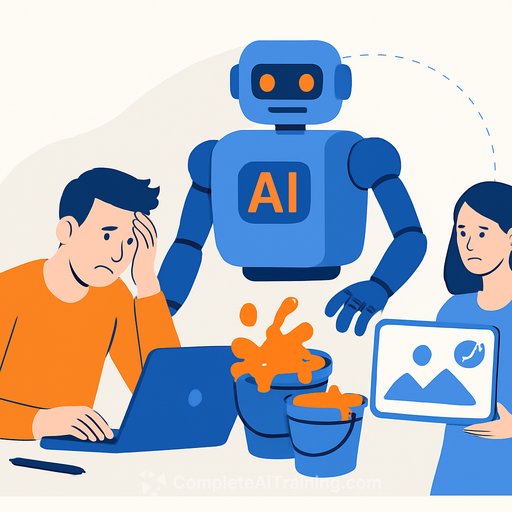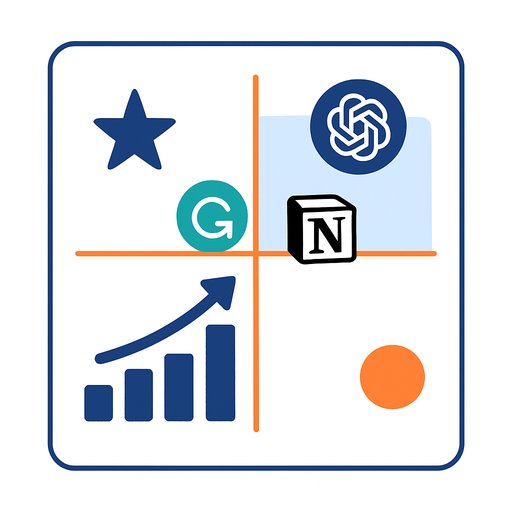AI vs. Author: Are Writers Losing Work to Machines in 2025?
Since the launch of ChatGPT, many freelance writers have worried about the impact of AI on their income. Initially, businesses hesitated to fully replace human writers, uncertain about how search engines like Google would treat AI-generated content. Instead, they experimented cautiously, often verifying whether content was human-made.
Now, with a clearer picture of how AI can support rather than replace human writers, it's time to ask: Are writers truly losing work to machines in 2025? The trends suggest some shifts, but the story is more nuanced than just "writers vs. AI."
Freelance Writing Jobs Are Declining
AI hasn't eliminated human writers entirely, but freelance opportunities—especially for entry-level and general content—are becoming scarcer. Many small and mid-sized businesses use AI tools to quickly generate bulk content like blog posts, product descriptions, newsletters, and social media captions.
These tools can produce content faster and often cheaper than hiring a freelancer. As a result, freelancers who don’t offer expertise beyond what AI can mimic—such as deep industry insight, strategic content planning, or a distinctive voice—are finding it harder to maintain their rates.
More Competition, Fewer Openings
The rise of AI-generated content has reduced demand for human writers in straightforward or repetitive roles. This means fewer job openings and fiercer competition. Writers now compete with dozens or even hundreds of applicants for a single gig, often driving rates down as they underbid each other to secure work.
Standing out today takes more than solid writing. It demands a unique voice, adaptability, and creating value that AI can’t replicate.
Entry-Level Writing Jobs Are Becoming Rare
One of the biggest changes in the writing market is the decline of entry-level jobs. These once-common gigs—like $40 blog posts and listicles—served as stepping stones for new freelancers. Typically low-budget clients hired freelancers for basic content to boost SEO or brand visibility.
Now, AI often handles these assignments entirely. Clients who previously accepted lower-quality human writing are turning to AI as a faster, cheaper alternative for basic content needs.
New Opportunities Are Emerging
While traditional writing jobs may be shrinking, AI is creating fresh roles for writers. One example is the AI content writer, who guides, prompts, and polishes AI-generated drafts to fit a brand’s voice and goals. This isn’t writing from scratch but refining machine output into publish-ready content.
Additionally, AI content proofreaders are in demand to spot AI “tells,” correct awkward phrasing, verify facts, and maintain consistency. Since AI can produce errors or bland content, these proofreaders keep content credible and engaging.
Writers who embrace AI as a tool rather than a threat will find new ways to stay relevant and grow in this changing job market.
How to Future-Proof Your Writing Career
Why It Matters
Adapting to the evolving content creation landscape is essential. Here are practical steps writers can take to stay competitive:
- Embrace AI Tools
Use AI to write faster and smarter. Get familiar with tools like ChatGPT, SurghGraph, and Grammarly. - Niche Down
Specialized knowledge is tough for AI to copy. Focus on areas like legal, medical, or SaaS content. - Strengthen Editing & Proofing
AI content needs human polish. Offer services that clean up and proof AI drafts. - Build a Personal Brand
Clients trust recognizable names. Develop a portfolio, stay active on LinkedIn, or start a newsletter platform like Substack. - Learn SEO & Strategy
Content strategy remains human-led. Understand SEO basics, content planning, and reader intent. - Offer Multi-Skilled Services
Expand beyond writing. Learn content planning, email marketing, or basic design skills. - Stay Updated on Trends
Keep learning by reading industry blogs, joining writer communities, and taking new courses.
For those interested in deepening AI skills, platforms like Complete AI Training offer courses that can help writers integrate AI effectively into their workflow.
Conclusion
AI has reduced some traditional writing roles but hasn’t eliminated the need for writers. Instead, it’s reshaping the industry. Writers who adapt by specializing, learning new skills, and using AI as a tool can continue to find meaningful work. The key is to deliver value that machines simply can’t match.
Your membership also unlocks:





